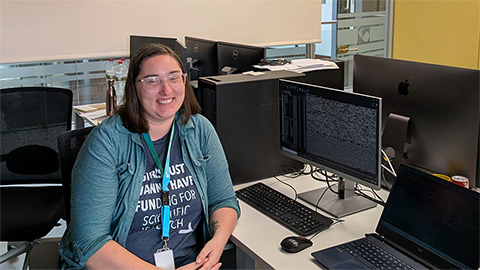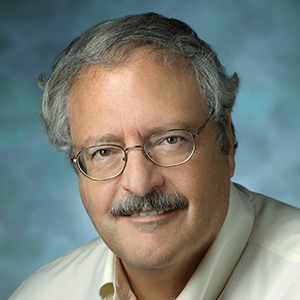The ASBMB has done a lot to benefit science and our field
It has been my great honor and privilege to serve as the American Society for Biochemistry and Molecular Biology’s president for the past two years. My term ends this month, and I am pleased to welcome Toni Antalis as the ASBMB’s new president. I cannot think of anyone more qualified to take over the leadership of our society. Toni served as ASBMB treasurer and chair of the finance committee before becoming president-elect. She has an in-depth knowledge of our society and is dedicated to ensuring that ASBMB activities benefit our members and our field. I am leaving the society in great hands.
The past two years have seen big changes at the ASBMB.
We continued efforts started by Natalie Ahn, past president, to involve more young people in our society, especially by giving them more opportunities to present their work at our national meeting. Unfortunately, but wisely, we decided to cancel our 2020 meeting due to the COVID-19 outbreak. Nonetheless, ASBMB staff have kept us all in communication via Zoom calls and online presentations of materials that had been scheduled for the meeting.
After months of work and deliberation by many people, the society’s leadership decided it was in the best interest of our membership and scientific discovery to make all three ASBMB journals, the Journal of Biological Chemistry, Molecular & Cellular Proteomics and the Journal of Lipid Research, gold open access starting Jan. 1, 2021. This decision will have a huge impact on our science, and we hope it will expand the reach of our journals around the world. The ASBMB believes that making scientific discovery freely available to everyone is the right thing to do. A history of careful financial stewardship by the society’s senior staff and leaders made this decision possible. Open access will likely be mandated in the future, and now our society is out in front, taking the lead from a strong financial position.
As you know, the ASBMB for many years has held its national meeting with other scientific societies at the Experimental Biology conference. Earlier this year, we convened a task force and conducted a survey of members. Based upon their recommendations and responses, the ASBMB Council voted to hold the society’s national meeting independently starting in 2023. Having a stand-alone meeting will give us more control over programming and scheduling. Importantly, we believe that a smaller, ASBMB-centered meeting will foster a stronger sense of community.
The ASBMB Public Affairs Advisory Committee, chaired by Terri Kinzy and supported by Benjamin Corb, director of public affairs, has been active in promoting the interests of our membership to federal agencies. Together with other societies, the PAAC presented a strong letter to the National Institutes of Health against the politicizing of science, as evidenced by its removal of funding from a coronavirus researcher who collaborated with a laboratory in China. The PAAC also took a strong stance against the recent proposed legislation and executive orders to ban Chinese students and fellows from working in U.S. labs. Science must remain an international enterprise without borders or political interference.
Members of the ASBMB Minority Affairs Committee, chaired by Sonia Flores, released a powerful statement June 1 in response to police killings of Black people and institutionalized racism in the U.S. Their message was emailed to all society members and was published in ASBMB Today. We also shared it on all our social media channels, including our three journal accounts. The ASBMB strongly encourages all members to participate in whatever is required to remove systemic racism from all aspects of life in their communities and countries.
While many of us have been stuck at home in recent months, the ASBMB continues to support and represent our interests. The past two years have seen large changes in this society. It has been a privilege to work with the outstanding people on its committees and staff. The ASBMB has a bright future. Be sure to join us in our many activities and work with us toward our shared goals.
Enjoy reading ASBMB Today?
Become a member to receive the print edition four times a year and the digital edition monthly.
Learn moreGet the latest from ASBMB Today
Enter your email address, and we’ll send you a weekly email with recent articles, interviews and more.
Latest in Opinions
Opinions highlights or most popular articles

Women’s health cannot leave rare diseases behind
A physician living with lymphangioleiomyomatosis and a basic scientist explain why patient-driven, trial-ready research is essential to turning momentum into meaningful progress.

Making my spicy brain work for me
Researcher Reid Blanchett reflects on her journey navigating mental health struggles through graduate school. She found a new path in bioinformatics, proving that science can be flexible, forgiving and full of second chances.

The tortoise wins: How slowing down saved my Ph.D.
Graduate student Amy Bounds reflects on how slowing down in the lab not only improved her relationship with work but also made her a more productive scientist.

How pediatric cataracts shaped my scientific journey
Undergraduate student Grace Jones shares how she transformed her childhood cataract diagnosis into a scientific purpose. She explores how biochemistry can bring a clearer vision to others, and how personal history can shape discovery.

Debugging my code and teaching with ChatGPT
AI tools like ChatGPT have changed the way an assistant professor teaches and does research. But, he asserts that real growth still comes from struggle, and educators must help students use AI wisely — as scaffolds, not shortcuts.

AI in the lab: The power of smarter questions
An assistant professor discusses AI's evolution from a buzzword to a trusted research partner. It helps streamline reviews, troubleshoot code, save time and spark ideas, but its success relies on combining AI with expertise and critical thinking.

